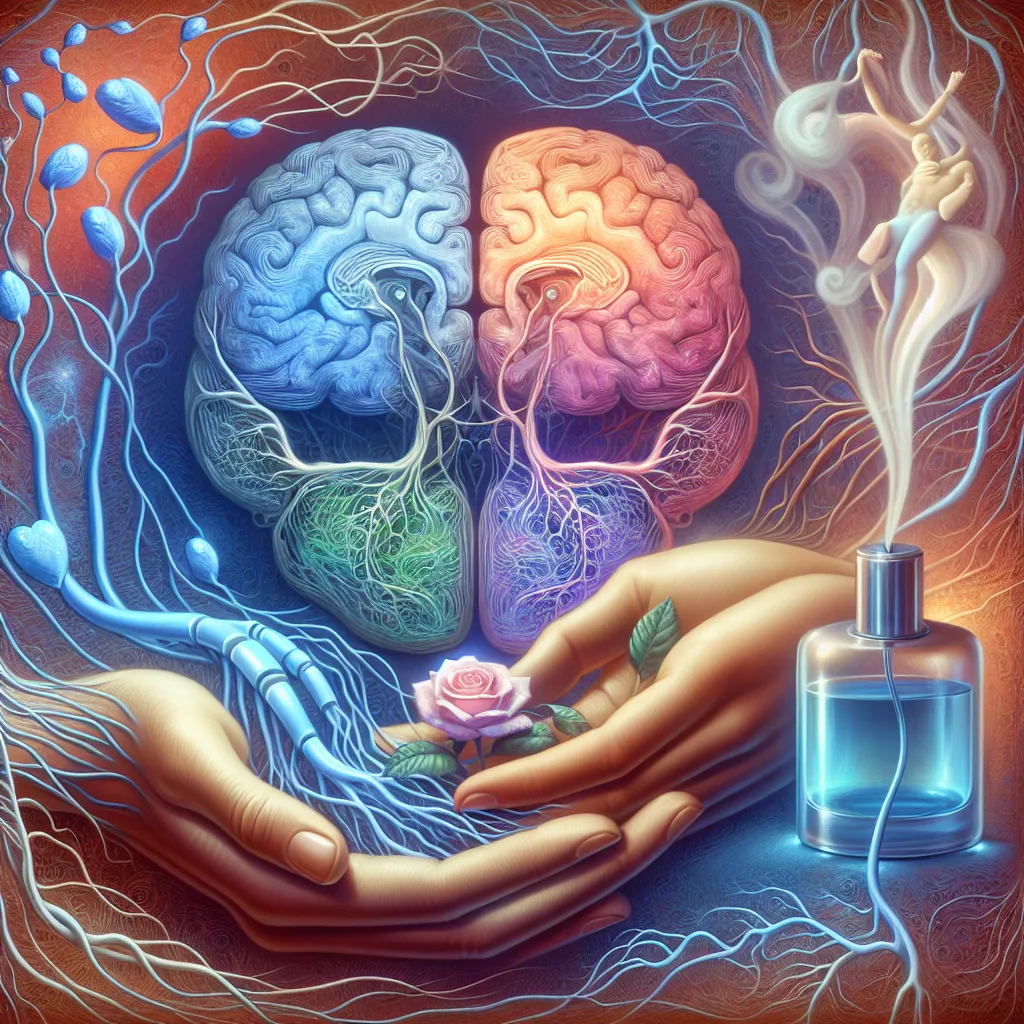Welcome, relationship seekers!
Today, we’re diving deep into an important question about relationships: “What secret reward system in the brain drives a man to cheat repeatedly?” This question is not only fascinating but also crucial for understanding why infidelity occurs and how trust can be rebuilt in a relationship.
The Direct Answer
The brain’s reward system, involving the release of dopamine, can be a key factor in repeated infidelity. Dopamine, often termed the “feel-good hormone”, is associated with pleasure and reward. When a man cheats, the novelty and risk involved can trigger the release of dopamine, leading to feelings of excitement and pleasure. Over time, this can result in a pattern of repeated cheating, as the brain seeks the dopamine rush associated with the act. However, it’s important to note that this doesn’t justify or excuse infidelity, but rather provides a biological explanation.
Now, let’s explore the extensive evidence and details that support this answer:
1. Understanding the Dopamine Reward System
The brain’s dopamine reward system is crucial to our survival as it motivates us to engage in activities that meet our basic needs.
A. The Role of Dopamine in Pleasure and Reward
When discussing the brain’s reward system, dopamine takes center stage. This neurotransmitter creates feelings of pleasure and reward, motivating us to repeat certain behaviors.
– Expert Perspectives: Neuroscientist Dr. Kent Berridge of the University of Michigan, who has extensively studied dopamine, asserts that this neurotransmitter increases “wanting” – the desire or craving for a reward. Similarly, Dr. Robert Sapolsky, a neuroendocrinology researcher at Stanford University, explains that dopamine is more about anticipation of pleasure rather than pleasure itself.
– Psychological Research: Numerous studies have shown that dopamine is released in response to pleasurable experiences, such as food, sex, and novel experiences. This includes a 2012 study by researchers at the University of California Los Angeles (UCLA) that found that novelty triggers dopamine release.
– Real-World Examples: Consider the thrill of a new romantic interest. The novelty and excitement often involve a dopamine rush, which can be addictive. In the context of infidelity, the novelty of a new partner and the thrill of an illicit affair can stimulate the release of dopamine, encouraging repeated cheating behavior.
B. Dopamine and Risk-Taking Behavior
The relationship between dopamine and risk-taking behavior is also a key aspect of understanding why men might cheat repeatedly.
– Historical Context: From an evolutionary perspective, risk-taking behavior in males, such as hunting, would have been rewarded with food and survival, reinforcing the link between risk and reward.
– Common Challenges: In modern times, however, risk-taking can lead to negative outcomes such as relationship breakdowns due to infidelity.
– Practical Applications: Understanding the relationship between dopamine and risk-taking can help individuals and therapists address the root causes of repeated infidelity.
C. Dopamine, Conditioning, and Addiction
The link between dopamine, conditioning, and addiction is also crucial in understanding repeated cheating.
– Expert Perspectives: Dr. Carl Hart, a neuroscientist at Columbia University, explains that dopamine is central to the process of conditioning and addiction. The repeated release of dopamine in response to certain behaviors can lead to those behaviors becoming habitual.
– Psychological Research: A study published in the Journal of Neuroscience in 2007 showed that repeated exposure to stimuli that release dopamine can lead to addiction-like behaviors.
– Real-World Examples: This could explain why some men repeatedly cheat, as the brain becomes conditioned to seek the dopamine rush associated with infidelity.
2. Dopamine and Infidelity: A Closer Look
To further understand the complex relationship between the dopamine reward system and infidelity, we need to delve deeper into the psychological, social, and biological factors involved.
A. Dopamine’s Role in Infidelity
Dopamine plays a significant role in infidelity, largely due to its effect on our emotions and behaviors.
1. Dopamine and Desire: Dopamine fuels desire and motivation. This can lead to pursuing new sexual partners despite the potential consequences.
2. Dopamine and Pleasure: The pleasure derived from an affair often triggers a surge of dopamine, reinforcing the desire to cheat.
3. Dopamine and Risk: The risk involved in cheating can also trigger dopamine release, making the act more exciting and rewarding.
4. Dopamine and Novelty: Novel experiences, such as a new sexual partner, can trigger dopamine release, further encouraging infidelity.
B. Other Neurotransmitters Involved
While dopamine plays a significant role, other neurotransmitters like oxytocin and vasopressin also influence infidelity.
– Oxytocin: Often termed the “love hormone”, oxytocin is released during intimate activities like sex and promotes bonding. Infidelity might occur when this bond weakens, and the individual seeks oxytocin release elsewhere.
– Vasopressin: This hormone also plays a role in pair-bonding and social behavior. Variations in the vasopressin receptor gene have been linked to infidelity in men.
C. Genetic and Environmental Factors
Despite the role of neurotransmitters, genetics and environment also contribute to infidelity.
– Genetics: A 2014 study in PLOS ONE found that genetic variations affecting the vasopressin system were associated with marital infidelity.
– Environment: Factors such as relationship satisfaction, opportunities for infidelity, and cultural norms can influence cheating behavior.
3. Practical Implications and Relationship Strategies
Understanding the dopamine reward system and infidelity provides valuable insights for relationship strategies.
A. Mitigating Dopamine-Driven Behaviors
Addressing dopamine-driven behaviors can help mitigate infidelity.
– Increasing Awareness: Understanding how dopamine might be driving infidelity can help individuals recognize and manage these impulses.
– Alternative Dopamine Sources: Finding healthy activities that also stimulate dopamine release, such as exercise or hobbies, can provide alternative sources of pleasure.
– Seeking Professional Help: Therapists can provide strategies for managing dopamine-driven behaviors, including cognitive-behavioral techniques.
B. Strengthening Relationships
Strengthening the relationship can also help reduce the risk of infidelity.
– Enhancing Communication: Open and honest communication about desires and concerns can enhance relationship satisfaction and reduce the desire to cheat.
– Increasing Relationship Investments: Investing time and effort in the relationship can enhance bonding and decrease the appeal of infidelity.
C. Dealing with Infidelity
If infidelity has occurred, there are strategies for dealing with the aftermath.
– Seeking Professional Help: Therapists can provide support and strategies for managing the emotional aftermath of infidelity.
– Healing and Forgiveness: Time, communication, and understanding can lead to healing and forgiveness, although this is a personal decision and not possible or desirable in all situations.
4. Additional Context and Considerations
While understanding the dopamine reward system provides insight into repeated infidelity, it’s important to consider other factors as well.
A. The Role of Individual Differences
Individual differences, such as personality traits and personal values, can also influence infidelity.
B. Sociocultural Factors
Sociocultural factors, including societal norms and cultural values, can affect attitudes towards infidelity and influence cheating behavior.
C. The Importance of Accountability
While understanding the brain’s reward system can explain why some men cheat repeatedly, it’s important not to use this as an excuse. Individuals are responsible for their actions and must be held accountable for their decisions.
Conclusion: The Definitive Answer
Based on all the evidence we’ve examined:
– Dopamine’s Role: The dopamine reward system can encourage repeated infidelity due to the pleasure, novelty, and risk associated with cheating.
– Other Factors: Other neurotransmitters, genetic and environmental factors, and individual differences also play a role in infidelity.
– Final Verdict: In conclusion, the brain’s reward system, particularly dopamine, can drive a man to cheat repeatedly, although this is influenced by a range of other factors.
Understanding the role of the brain’s reward system in infidelity can provide valuable insights for individuals, couples, and therapists. While this doesn’t excuse infidelity, it does shed light on why it occurs and can help guide strategies for prevention, intervention, and healing. Remember, knowledge is power, and understanding our brains can empower us to build stronger, healthier relationships.



